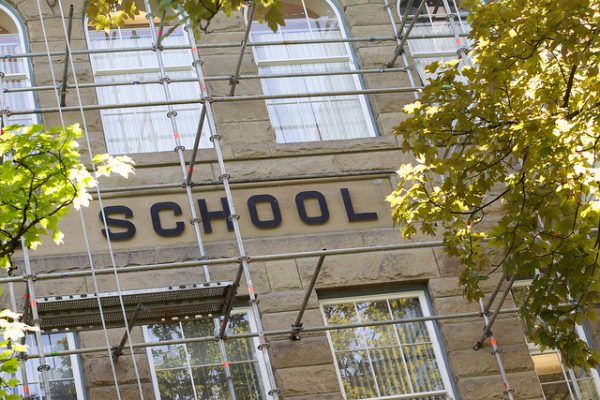
Originally posted February 16, 2017.
The narrow confirmation of Betsy DeVos as Secretary of Education has served as a catalyst for renewed conflict over public education in the United States. DeVos is a strong proponent of private education and charter schools, and this concerns supporters of a strong public school system. Social science comparing the two approaches shows distinct benefits of public schools and questions whether more choice in schooling really helps everyone.
The argument for private and charter schooling is based on the benefits of competition: when public schools don’t perform well, offering parents a broader set of choices forces them to compete and improve. While people often worry about public schools “failing,” it turns out that many schools with low standardized test scores actually do fine in terms of learning outcomes and whether learning persists over the summer.
- Douglas B. Downey, Paul T. von Hippel, Melanie Hughes. 2008. “Are ‘Failing’ Schools Really Failing? Using Seasonal Comparison to Evaluate School Effectiveness.” Sociology of Education. 81(3): 242 – 270
School choice can also reinforce inequality because people in poor and minority communities rarely have a similar set of schools to choose from. Many social scientists have found that the positive outcomes for students in charter schools are often limited to more privileged or affluent children.
- Patrick Denice, Betheny Gross. 2016. “Choice, Preferences, and Constraints: Evidence from Public School Applications in Denver.” Sociology of Education. 89(4): 300 – 320
- Peter M. Rich, Jennifer L. Jennings 2015. “Choice, Information, and Constrained Options: School Transfers in a Stratified Educational System” American Sociological Review 80(5): 1069-1098
- Mark Berends. 2015. Sociology and School Choice: What We Know After Two Decades of Charter Schools. Annual Review of Sociology 41: 159-180
Regardless of the possible benefits of competition that supporters of private schools claim, public schools simply do better when they receive more funding — funding that could be at risk if funds and focus are shifted primarily to private schools.
- Diane Ravitch. 2013. Reign of Error: The Hoax of the Privatization Movement and the Danger to America’s Public Schools. Vintage.
- Richard Arum. 1996. “Do Private Schools Force Public Schools to Compete?” American Sociological Review 61(1): 29–46.
For more, see a previous TROT on charter schools.

Comments 1
OK Essay — December 20, 2017
This is the defining social narrative of the past quarter of a century. The inarguable effect (some might even argue purpose) of the third wave of global capitalism (loosely definable as consumerism / neo-liberal) has been, in the developed world, to concentrate wealth and opportunity with a smaller percentage of fortunate ones in society whilst increasing inequality and comparative disadvantage. That is the social narrative being played out day in, day out in Britain - while people lap up their spiel about economic austerity (amongst a raft of other imagined fears, such as immigrants, Europe, socialists and Scottish Narionalists), the Tory austerity agenda works to entrench inequality, to remove opportunity from those who need it most, and secure wealth and status at the top of a plutocratic social order. We're going backwards, people, and it makes me want to weep for a country that I believe should be shpwing the way forward in exactly the opposite direction.